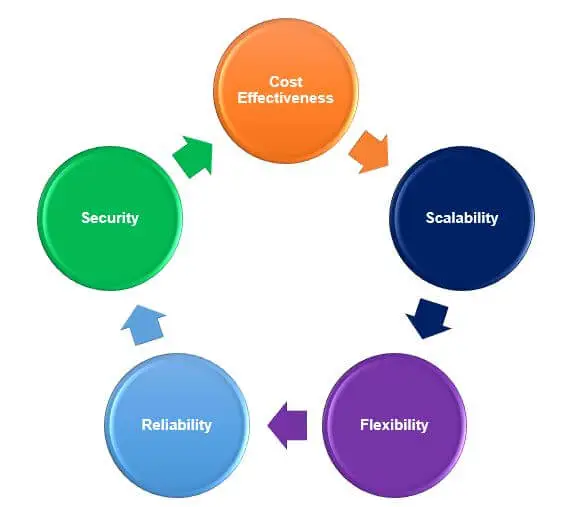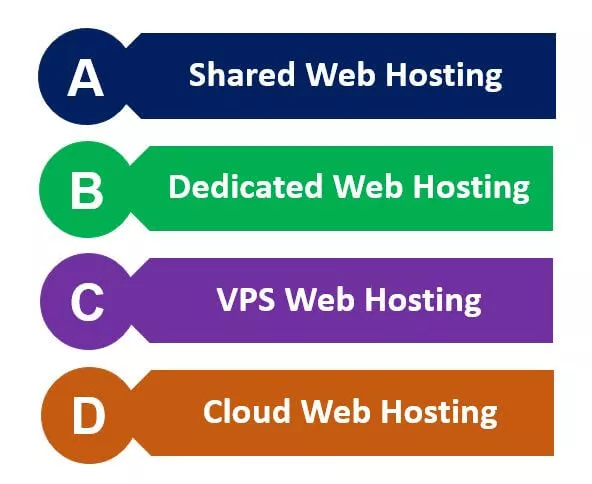What is a Virtual Private Server and How Does it Work?


A Virtual Private Server, also known as a VPS, is a type of web hosting that uses virtualization technology to split a single physical machine into multiple private server environments. These environments share the resources of the physical machine, but each environment has its own dedicated operating system (OS) and can be configured to act independently of the other environments on the same server.
This makes VPS hosting an excellent choice for businesses that need more flexibility and control over their web hosting environment than shared hosting can offer. In this article, we will discuss VPS and how it works!
How Does it Work?
A Virtual Private Server is created by partitioning a physical server into multiple smaller virtual servers. Each virtual server has its dedicated OS and can be configured independently of the others. This means that each VPS can run its own applications and services and can be rebooted independently of the others.
The main advantage of VPS hosting is that it offers the flexibility and control of a dedicated server at a much lower cost. VPS hosting is also a good choice for businesses that run multiple websites or require unique configuration options that are unavailable with shared hosting plans.
Contact a web hosting provider today to learn more about VPS hosting and how it can benefit your business.
Advantages of a Virtual Private Server (VPS)
Numerous benefits come with using a Virtual Private Server (VPS). For businesses, a VPS can provide a more cost-effective and scalable solution than a traditional physical server.
For individual users, a VPS can offer a flexible and affordable way to access the power and features of a dedicated server without the need for owning or managing hardware.
Some of the key advantages of using a Virtual Private Server are:


Cost-effectiveness:
A Virtual Private Server is typically more cost-effective than a physical server, especially when you factor in the cost of hardware, maintenance, and energy consumption.
Scalability:
A VPS can be easily scaled up or down to meet changing needs. This makes it ideal for businesses that experience seasonal or sporadic spikes in traffic.
Flexibility:
The Virtual Private Servers can be customized to meet the specific needs of a business or individual user. This includes the ability to install custom applications and change server settings.
Reliability:
It is hosted on a physical server that is typically more reliable than a personal computer. It means that your website or application will be less likely to experience downtime due to hardware failures.
Security:
The VPSs offer greater security than a shared hosting environment. This is because each virtual server is isolated from the others, making it more difficult for malicious code to spread from one site to another.
Disadvantages of a Virtual Private Server
There are also some potential drawbacks to using a VPS. These include:
Shared resources:
Despite the isolation of each virtual server, they are still sharing physical resources with other servers on the same machine. It means that if one server is experiencing heavy traffic, it can impact the performance of the others.
Limited control:
While you have more control than with shared hosting, you are still limited in what you can do with your server. This can be frustrating if you need to install custom applications or make significant changes to server settings.
Higher cost:
While a VPS is typically more affordable than a dedicated server, it is still more expensive than shared hosting. This makes it less ideal for small businesses or individual users on a tight budget.
How to choose a good Virtual Private Server (VPS) Provider?
When choosing a VPS provider, there are several important factors to consider, including:
Price:
Make sure to compare the price of different VPS plans before deciding. Some providers offer discounts for longer-term contracts, so be sure to factor this into your decision.
Features:
Make sure that the VPS plan you choose includes the features you need, such as unlimited storage and bandwidth, a choice of the operating system, and the ability to install custom applications.
Performance:
Pay attention to reviews and ratings when choosing a VPS provider. Select a company with a good reputation for uptime and performance.
Customer support:
Choose a provider that offers 24/7 customer support if you experience any server problems.
Now that you know what Virtual Private Server is and how it works, you can decide whether it is right for you. If you decide to use a VPS, choose a reputable provider with competitive pricing and good customer support.
Difference between Virtual Private Server and Dedicated Server
A Virtual Private Server is a virtual machine sold as a service by an Internet hosting provider. A dedicated server is a physical machine that you can lease or buy outright and host in your own facility or colocation center.
Different Types of Web Hosting Services
There are four types of web hostings:


Shared Hosting
Shared web hosting is a type of web hosting service where many websites reside on one web server connected to the Internet. In this hosting, your website shares server space with other websites.
This is the most common form of web hosting, as it is the most cost-effective way and is perfect for small- to medium-sized websites.
With shared hosting, server maintenance costs are spread over many customers.
Shared hosts typically offer various services, including email, webmail, file transfer protocol (FTP), and database access. Some also provide e-commerce features, such as shopping carts and SSL certificates.
The main advantage of shared hosting is that it is much more affordable than other types of web hosting, such as dedicated hosting. Shared hosting is also very convenient, allowing easy website management and growth.
Dedicated Web Hosting
Dedicated web hosting is a type of Internet hosting in which the client leases an entire server not shared with anyone else. This is more expensive than shared web hosting, where websites share a server with other sites.
Dedicated servers are usually used by large companies and organizations that require a lot of server space and bandwidth and do not want to share their resources with other users. Small businesses and individual users usually cannot afford to lease a dedicated server.
Dedicated servers can be managed or unmanaged. Managed dedicated servers come with a higher price tag but offer more support and security features than unmanaged servers. Unmanaged servers are cheaper but require the user to have more technical knowledge and experience to set up and maintain the server.
VPS Hosting
Virtual Private Server hosting is a type of web hosting that uses virtual private servers. A VPS is a physical server divided into multiple smaller virtual servers, each of which can run its operating system and applications.
VPS hosting provides a more affordable and scalable alternative to dedicated server hosting while providing the benefits of a private server.
VPS hosting is ideal for businesses and individuals who need more power and flexibility than a shared hosting plan but don’t want to invest in a dedicated server. VPS plans can be customized to meet your specific needs and can be upgraded as your website grows.
If you’re looking for a reliable and affordable web hosting solution, VPS hosting is a great option.
Cloud Hosting
Cloud hosting is web hosting that uses cloud resources to store and deliver website content. Unlike traditional web hosting, which keeps website data on a single server, cloud hosting spreads website data across multiple servers.
This allows for greater flexibility and scalability when meeting website demands. Cloud hosting can be used for everything from small personal websites to large enterprise-level applications.
Several benefits come with using cloud hosting. Perhaps the most notable is the increased flexibility and scalability it offers. With cloud hosting, website data is stored across multiple servers, so there is no need to worry about limited storage space or bandwidth. This also makes handling sudden spikes in website traffic easier, as the cloud can provide additional resources as needed.
Cloud hosting is generally more reliable than traditional web hosting, as it does not rely on a single server. If one server goes down, there are still others that can keep the website up and running.
Overall, cloud hosting is an excellent option for those who need more flexibility and scalability than traditional web hosting can provide.
However, if you are considering using web hosting for your website, consider all the pros and cons of different types of web hostings before making a decision.
Also Read: Define a VPN and How Can it Benefit You?




